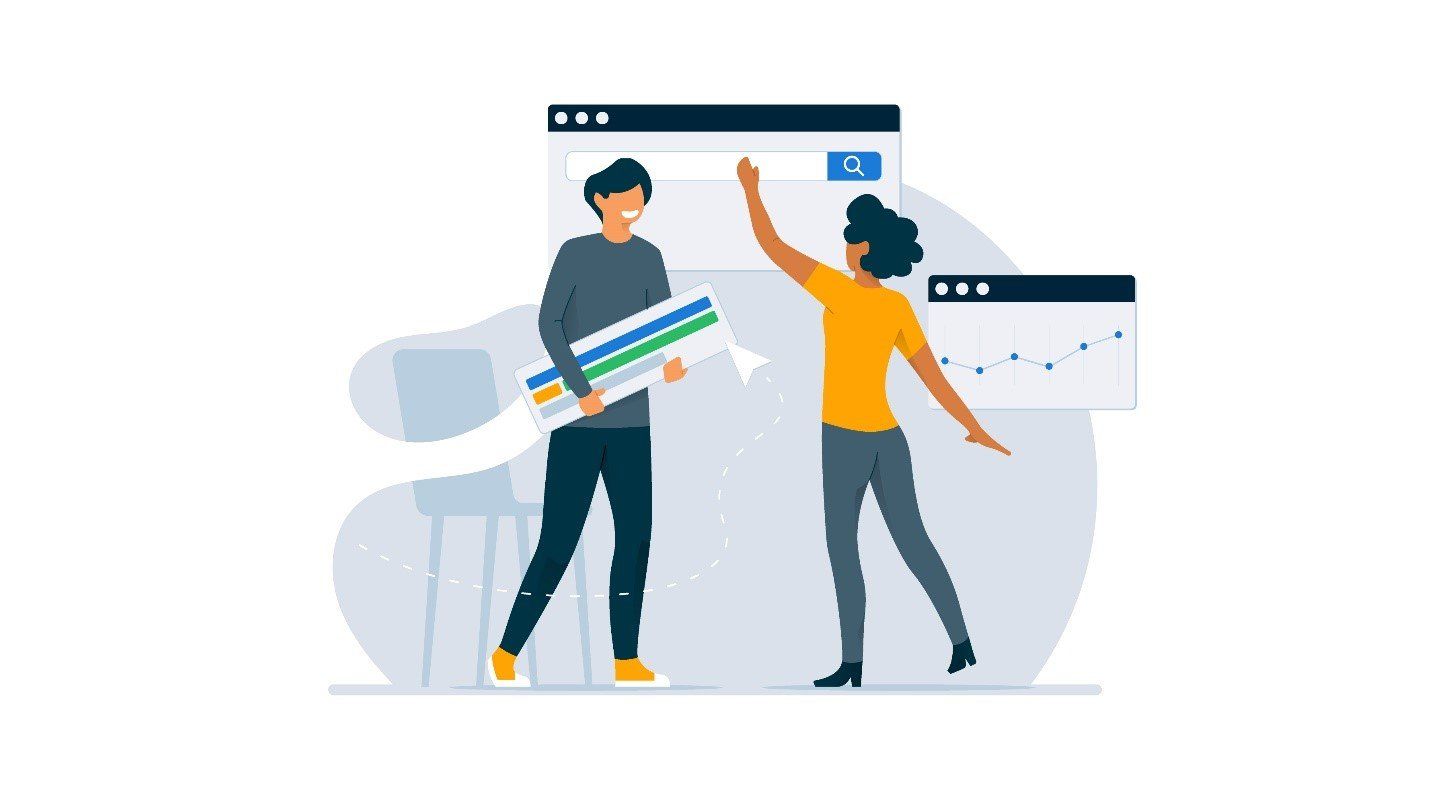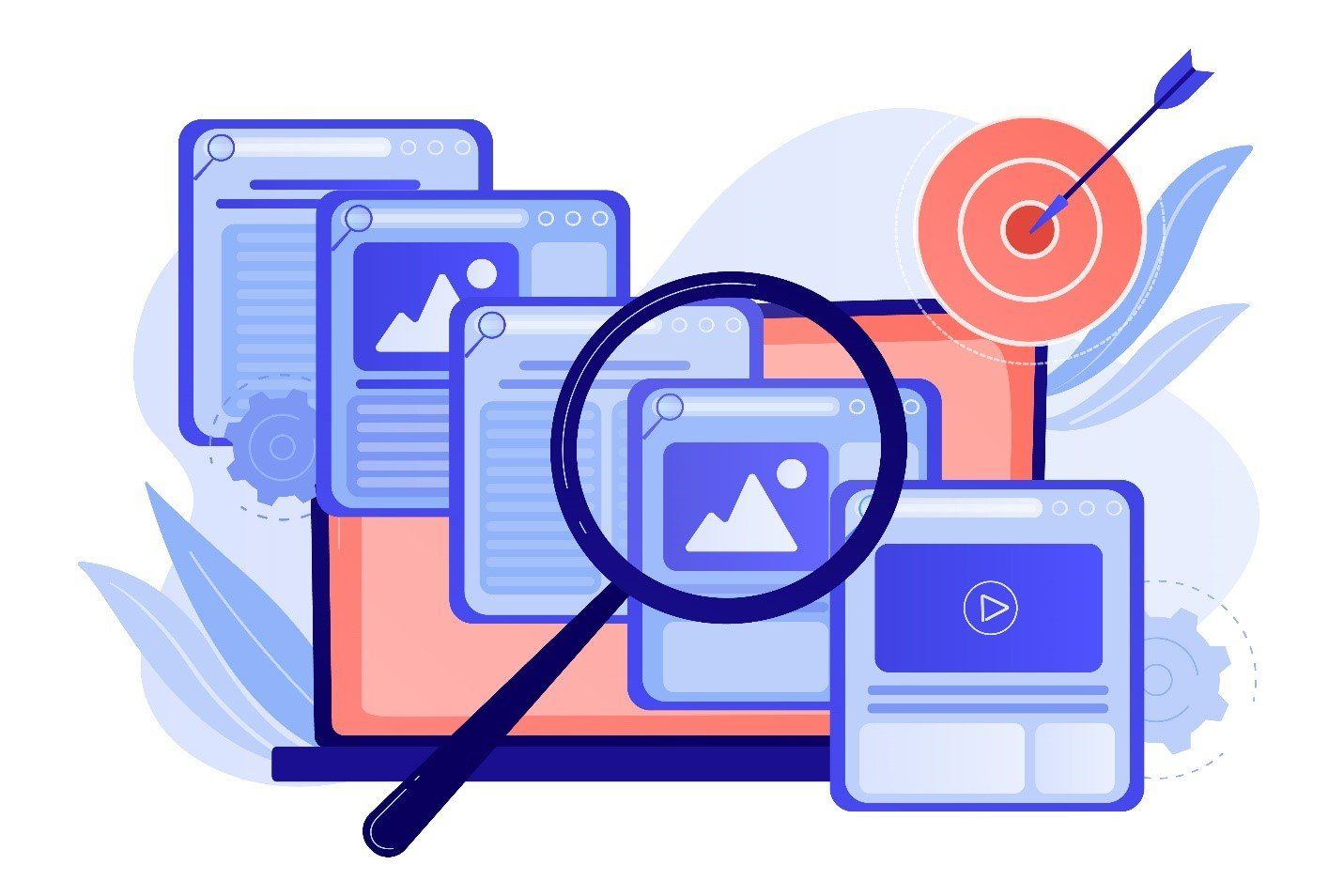How Can Local Businesses Benefit from Digital Marketing Strategy
SEO helps entrepreneurs and small company owners to create fast, durable and user-friendly websites. These websites have higher rankings in search engines, attracting more qualified customers and, ultimately, improving conversion rates. SEO can also help increase your company's image as search engine users have a higher likelihood of trusting businesses that are listed in the top position of SERPs (Search Engine Results Page) as opposed to those who don't. If you're an owner of a business, you must use SEO to build a solid online presence and outdo your competition to gain new customers and increase your sales. The benefits of local search are enormous to small-scale businesses. However, 46% of Google searches are local content, which implies that if your website is un-optimized for local searches, it could be losing potential customers within your area.
Local SEO is crucial to ensure relevance to your business. To assist you to optimize your business's local SEO, We've created an exhaustive guide to local SEO the best practices and tools. When you're done reading this post, you'll have a solid idea of how SEO can be beneficial for businesses to attract customers who make use of local searches to decide what products or services to buy.
What is Local SEO?
Local SEO is about increasing search visibility for companies that provide specific services to their local communities. These could be brick and mortar establishments with physical locations like a grocery shop or dental office or even service-area businesses that provide services for a specific geographical area, for example, an electrician or house-cleaning company. It covers everything from the process of claiming an official company listing to making sure that the location of a franchise appears in Google local results (a process known as citation data or location management). Furthermore, it includes the managing of online reviews and ratings and local-centric social media participation.
Local SEO optimization leads to more leads, traffic to your website and conversions since the approach is more applicable to your local market. Think of this strategy as a tool to aid you in gaining a competitive edge against more prominent national brands with unlimited wealth. By focusing on localized SEO projects, you'll be able to beat the advantages of more notable companies that often concentrate on broad keywords. This will drive customers by leveraging brand recognition instead of value propositions. Furthermore, as per the survey conducted in 2017, 35% of all traffic to search engines is local. Therefore, if you don't have local search engine optimization, your company could miss out on significant traffic.
How Did Search Engines Evolve?
Since there were a few websites when the first users began using web-based technology, accessing the internet was easy. As the internet developed and the internet grew, search engines were created to aid users in finding the sites they were searching for.
When you entered a phrase into Google's search bar, it was then matched with pages that contained the keywords in the search term. Google used a similar method. However, it quickly surpassed competitors and became one of the first engines using links between sites to determine which ones were trustworthy and had credibility.
Thus, how does Google operate?
When you type a phrase into Google, the search engine looks at the pattern of various websites signals, also known as ranking factors, like the relevancy of your website and provides an index of websites that correspond to your query. Most people don't realize that Google doesn't conduct an actual-time search when someone types something in the search box. Instead, it's searching an archived copy of all websites found by Google. Thus, the name knows it of Google Index. Google makes the index by crawling across the web using tiny programs referred to as "spiders."
Each spider functions precisely the same way, beginning by displaying a single page. It then explores the hyperlinks on that page and then analyzes the next page's content, etc. The index is generated when data from the web is crawled to Google's servers. The spiders operate at an incredible scale, continuously searching through trillions of web pages at astonishing speed. As a result, the index is kept up-to-date and ensures that websites and links are spotted quickly.
Google’s ranking system for search results
Google employs various techniques to rank hundreds or perhaps thousands of sites within a matter of seconds. They are known as algorithms. When you Google something, an algorithm analyzes the index and displays an organic result page that includes websites that match your needs. These results are sorted and sorted by the level of their importance, relevance and popularity as judged through inbound hyperlinks.
The algorithm considers a range of off-site and on-site factors to determine if websites offer content that matches your search. Websites relevant to your search are included in a list that is then sorted by their importance. In addition, by combining on-site and off-site elements, The algorithm determines which websites are most compatible with your search criteria. The websites that match are displayed at the top of the search results. Optimizing your SEO will impact your site's relevancy, importance and popularity of your link. If the proper aspects of your website's online footprint are correctly optimized, your site will appear higher in search results.
- Create a Logical Website Structure
As Google says in their blog explaining the steps required for creating a Google-friendly website, create a coherent linking structure to your site. Every page should contain at minimum one static text link that points to it. Simply speaking, it means your site should be simple to browse. For example, your homepage should contain hyperlinks to your most essential pages (about content, information, services). Its services page should include the following information and links to the individual pages on your service. And so on. It may be obvious. However, We've noticed that this isn't often the case for small-scale businesses in particular.
The process usually begins somewhat rationally; however, when more pages and carriers are added, the system breaks down. What can you do to overcome this? The goal is to look at your site from a fresh viewpoint and ensure it is structured according to a structure. Start with your homepage, and determine if you can quickly and effortlessly locate - and access all your crucial pages.
- Keep your website error-free by removing broken pages and hyperlinks.
A website with broken content is not ideal, not for the visitors and not for SEO-related purposes. Take a look at the following question: What do broken links and broken pages communicate to you? Most likely, it's frequently not maintained, and the owner doesn't seem to care about the maintenance of a functional website.
- Identify the broken (404) website pages.
Google offers the following things to comment on these:
While Not found (404), Errors like While Not Found (404) are not uncommon. It is essential to address these errors for pages that link to other websites, older URLs that were part of your sitemap but were later deleted or misspelt URLs for crucial pages, and URLs for popular websites that are no are available on your website. So, Google and your visitors will be able to access the information that you are concerned about.
What are the requirements of local SEO
What is this going to means for SEOs? The local map pack is integrated into the standard Google organic results. The primary Google searches for local ranking and separate algorithms power the results from the regional map packs. Local businesses you will be able to show up in both the primary organic results and maps for local businesses. If you're beginning your marketing on the internet, among the more challenging issues is deciding which areas to focus on your efforts to increase the effectiveness of your marketing. Moz is a company that provides Marketing Analytics tools has published the results of its Annual local search ranking factors Survey comprising the top 35-40 world professionals in the field of local SEO. The results shed illumination on the aspects that impact local search's performance.
Furthermore, factors that are based on location like having a Google My Business listing, local data aggregators' citations, and review signals that your local customers should post are incorporated into the rankings of your local SEO, which is why you must account for these when you are working on local SEO.
SEO provides a visitor more affordable than PPC
PPC is a " Pay per click" invocation that draws the phrase from the form of purchase it offers. Each click is paid for. You pay for it when a user on Google, Facebook or LinkedIn can see your PPC advert and decides to visit your website. Based on where you placed your advert and the competitors on your site, your "CP Cost-per-Click" will vary. You could end up paying $1.00 per visit, which is 70 for each Click! click!
However, SEO services are not dependent on per click. Your site will get organic clicks after your site has been placed on the first Google page. The great thing is that for each click, you don't have to pay! An SEO strategy could eventually let you spend less on PPC and begin "free" clicks with organic results from search engines if you are currently spending 2000 dollars every month in PPC. What is the question, then? Is SEO worthwhile in this scenario? Are you looking to lower the cost per lead? If yes, SEO is worth the effort, so YES.
What is the price of SEO?
Let's clear your head the notion that SEO is an expense or "cost." SEO is an investment for your business. You create a website and content that lasts for as long as your company endures. you build an asset. Every dollar invested in an SEO campaign will result in the company's outcomes. However, paid advertisements (PPCs) could reap the benefits of advantages faster; however, they will cease to be effective after you have stopped spending your money. What, then, makes helpful SEO? It is a time- and money-saving investment. SEO is an investment that should start sooner than later if your budget for marketing permits. The longer you delay your investment in the effective SEO strategy longer it will take to attract free traffic. Time is an essential benefit in SEO. SEO remains a crucial investment for small businesses with a single employee. However, it may be better to conduct SEO by yourself rather than hiring an agency to do it for you.
Revisit a section
- How Can Local Businesses Benefit from Digital Marketing Strategy
- What is Local SEO?
- How Did Search Engines Evolve?
- Thus, how does Google operate?
- Google’s ranking system for search results
- Create a Logical Website Structure
- Keep your website error-free by removing broken pages and hyperlinks.
- Identify the broken (404) website pages.
- What are the requirements of local SEO
- SEO provides a visitor more affordable than PPC
- What is the price of SEO?




